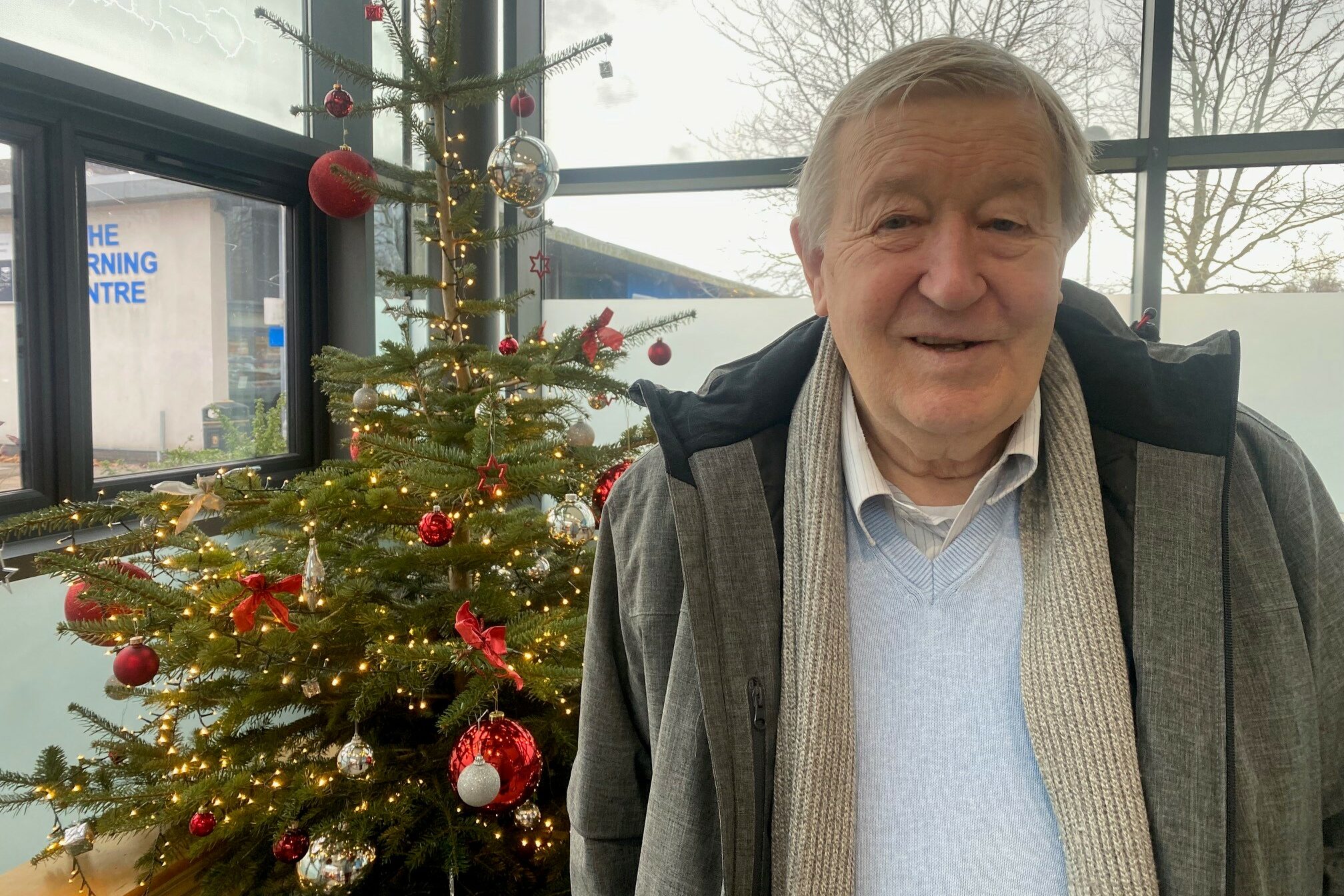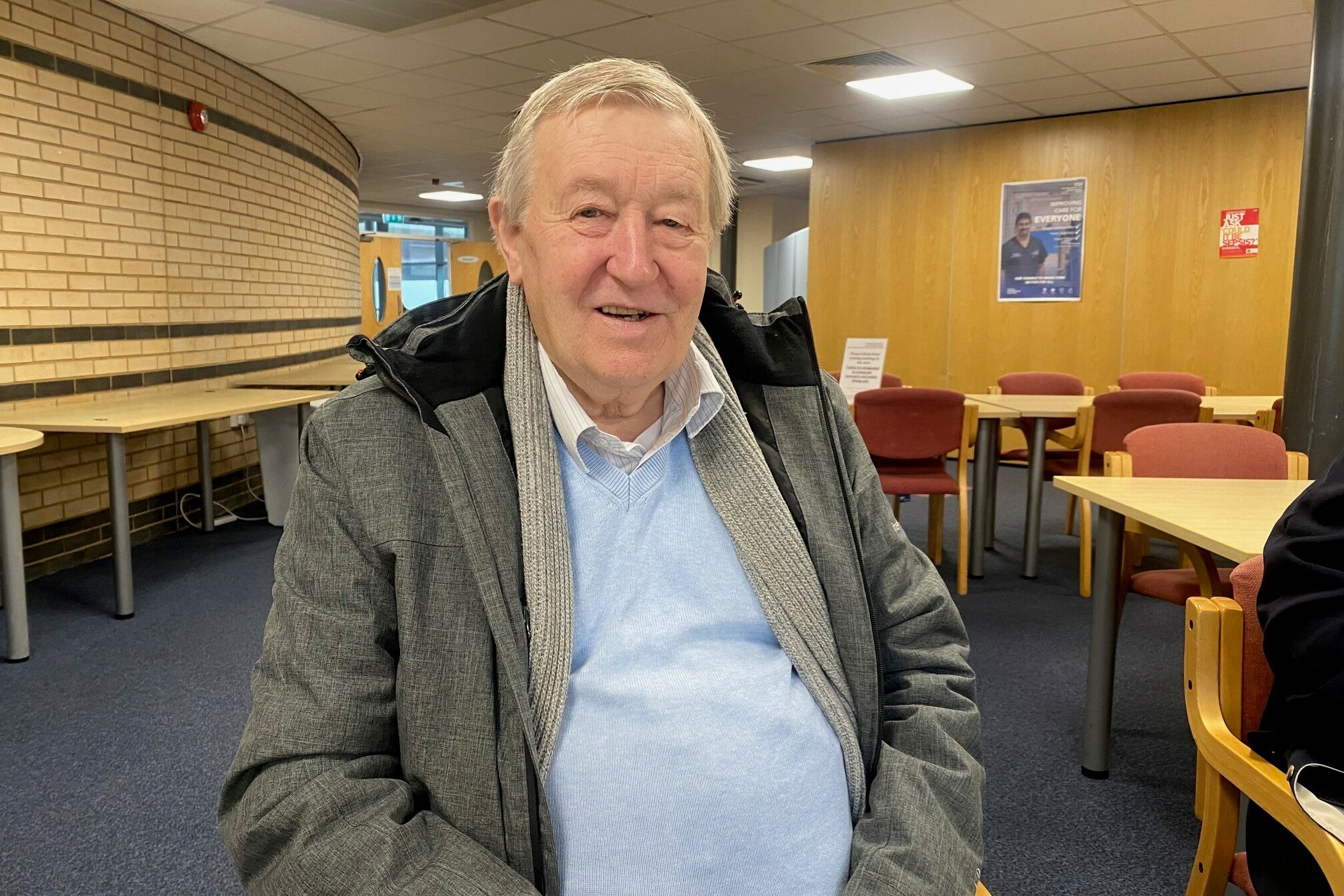Issues in the night
Colin, now 77, from Stirchley, Telford, is a retired veg grower with two children and four grandchildren. In 2015 he started having issues going to toilet at night. He eventually went to doctors who did an internal examination, and he was told his prostate was englarged and given medication. Colin said: “He did ask me how things were going but maybe I wasn’t forceful enough. I just got used my used to managing my nighttime problems and I got used getting up multiple times in the night. I wasn’t so much putting it off, I was putting up with it and there wasn’t much follow up.”
Things didn’t improve so his wife Eileen persuaded him to go and have the PSA blood test in June 2022.
“That’s when my journey began when the blood test result which showed a PSA of 20. For someone my age it should have been about 5.”
More tests and diagnosis
This was the start of a number of tests and MRI scans at both the Princess Royal Hospital in Telford and Royal Shrewsbury Hospital. It was confirmed Colin had prostate cancer.
“In my own mind I was almost 100% sure I would have it and my wife had been looking into things. I wasn’t that surprised when I was told. There was a lot in the news about it and on sports programs and when we got a call from a nurse, she was excellent at explaining what would happen.”
Colin was prescribed Bicalutamide for 28 days and Zoladex – an injection every three months which will continue until September 2025.
At first Colin was told he would need 20 rounds of radiotherapy, but because his cancer was aggressive, he was told later told he would need 37 – the most you can have.
His treatment started on 13 March 2023 and finished on 5th May 2023. He had radiotherapy five days a week at the Lingen Davies Cancer Centre in Shrewsbury.

Treatment and aftermath
Colin said his treatment didn’t hurt in any way and there were never any issues, but he has been tired since and suffers hot flushes in the night. He is hoping that his symptoms of getting up in the night will lessen over time, but he knows his age will play a part.
“Fortunately, my wife was with me every day during treatment and everyone from the receptionists to the doctors and nurses would always ask me how I was, and they get to know you and treat you so well. I am sure some people would find it very difficult. The treatment didn’t take more than 15 minutes, but we would be there for about two hours each day in total.
“I find it difficult to drink enough water, which is something that is needed for the treatment.
“There were some difficult days but with the great help of staff at Lingen Davies we got through the 37 treatments. By November 2023 my PSA had dropped to 0.07. I am still having the injections until September 2025 at my local surgery.”
Colin’s PSA tests have moved from three months to six months. He still has telephone consultations with nurses and doctors when he has the results of the PSA tests to see how he is doing.
“My treatment by the staff at Lingen Davies could not have gone better and I hope they enjoyed the presents we gave them after my treatment. I do not think I could have got through without the support of my wife.
“The more you talk about it, the more you find out people who have it and you become more aware of it too. After much persuading my son had the PSA test as myself and my father had it.”
Colin says that perhaps things could have been different if hed’ve followed up sooner. He is pleased there is more out there in the media about prostate cancer so he hopes it will make a difference by helping people to become more aware of it and what to do.
